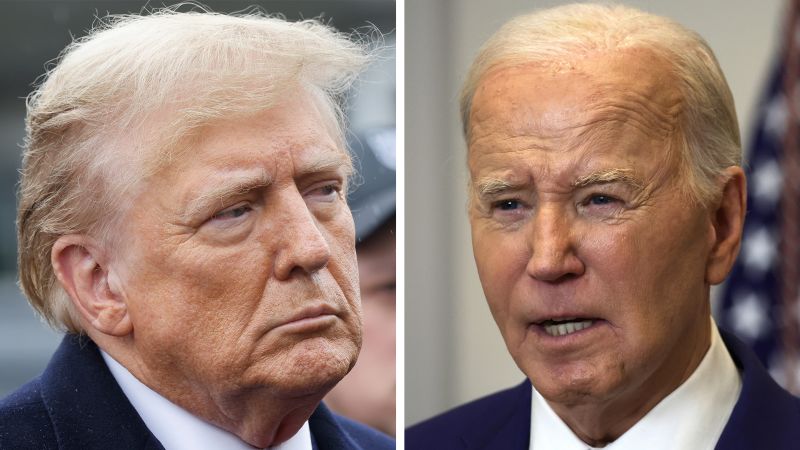Former President Donald Trump and current President Joe Biden are both using religion to appeal to their followers, but in very different ways. Biden, a practicing Catholic, has openly grappled with issues like abortion within the context of his party’s beliefs in women’s rights. On the other hand, Trump is aligning himself with Christian nationalism, using phrases like “Make America Pray Again” and framing his legal troubles as acts of persecution. Trump is even selling commemorative Bibles to his supporters, highlighting the importance of religion in his political brand.
While both Trump and Biden are utilizing religion in their political strategies, their approaches are strikingly different. Biden’s faith has been a central part of his identity throughout his life, often guiding his decisions and actions. Trump, on the other hand, has adopted a more transactional relationship with religion, using it to appeal to a specific base of followers and promote his own image as a defender of Christian values. This contrast highlights the ways in which religion can be manipulated for political gain, with each leader using it to further their own agendas.
Biden has faced criticism from Republicans for allegedly disrespecting Easter, despite his devout Catholic beliefs. This criticism reflects the complex relationship between religion and politics in the United States, where public figures are often expected to conform to certain religious norms in order to gain support from religious voters. Biden’s struggle to balance his personal beliefs with his political responsibilities illustrates the challenges of navigating religious identity in a public setting, where every action is scrutinized and interpreted through a political lens.
Trump’s embrace of Christian nationalism has deepened the divide between religious and secular Americans, with his rhetoric and policies positioning Christianity as the dominant religion in the country. This approach has sparked backlash from critics who argue that it undermines the separation of church and state, and threatens the rights of minority religious groups. Trump’s use of religion as a political tool has fueled tensions within the country, opening up debates about the role of faith in governing and the boundaries between religion and politics.
As both Trump and Biden continue to use religion to appeal to their followers, the role of faith in politics remains a contentious issue in American society. While Biden’s personal beliefs have shaped his political career in subtle ways, Trump’s instrumental use of religion reflects a more transactional approach to faith. The contrast between the two leaders highlights the diverse ways in which religion can be used in the political sphere, from guiding personal values to shaping public policies. Ultimately, the intersection of religion and politics in the United States is a complex and evolving landscape, with no clear consensus on how faith should inform governance in a diverse and pluralistic society.


